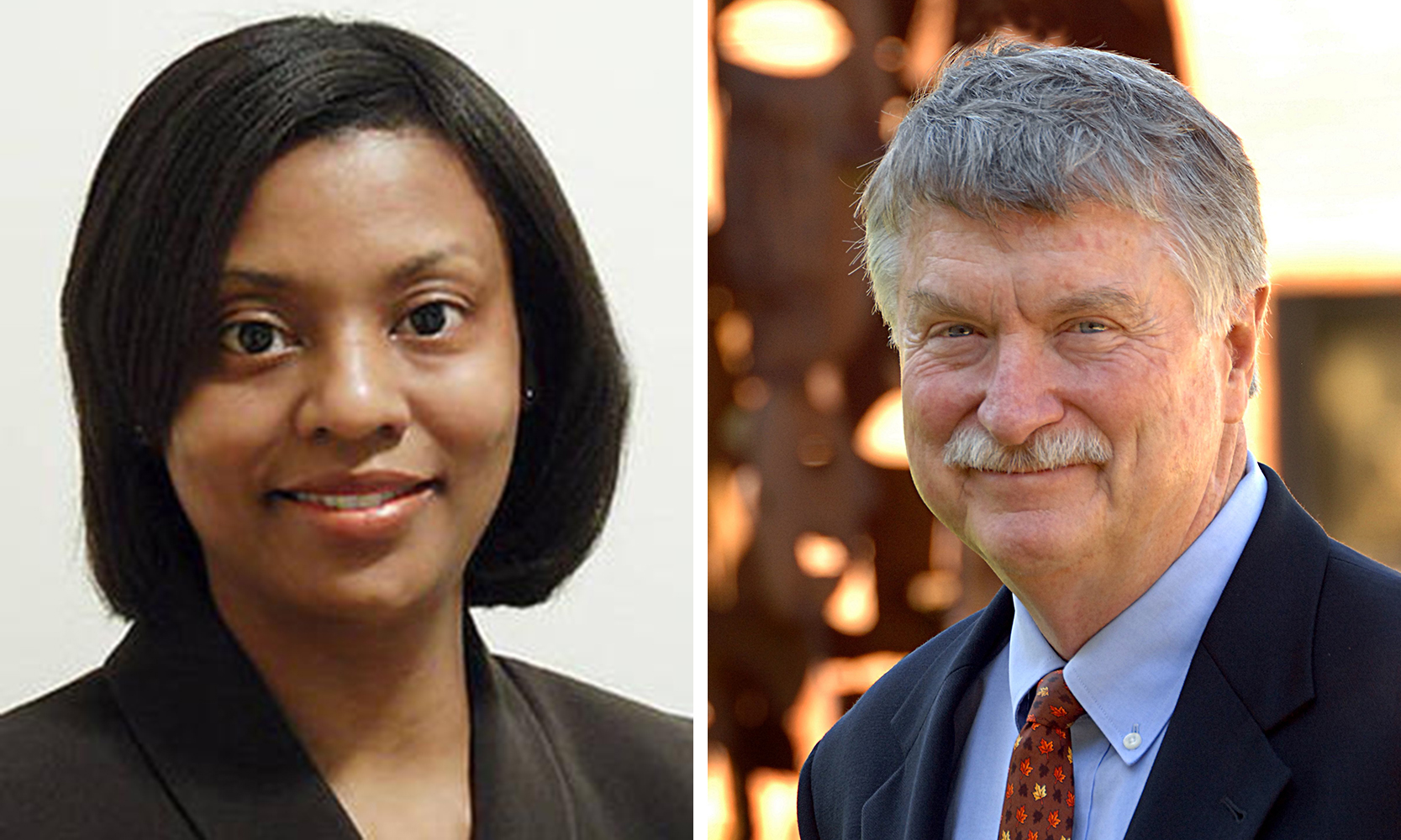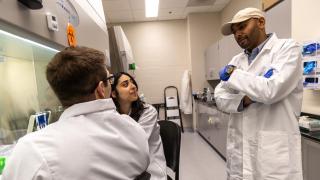
The University of Michigan Board of Regents have approved one-year extensions for Ann Lampkin-Williams as dean of the College of Education, Health, and Human Services and Anthony England as dean of the College of Engineering and Computer Science. Both appointments will run from July 1, 2019, through June 30, 2020.
Lampkin-Williams, who has served as interim dean of the College of Education, Health, and Human Services since July 2017, is a specialist in policy, planning, administration and the use of technology in post-secondary education. She holds a Ph.D. from Clark Atlanta University and a B.S.W. and M.S.W. from the Indiana University School of Social Work.
As interim dean, Lampkin-Williams provided intellectual, academic and operational leadership for the college. She first came to the university in 2010 as special counsel to the chancellor for inclusion and strategic projects and has served in a variety of capacities, including in several interim leadership roles.
“Dean Lampkin-Williams is a strong advocate for the College of Education, Health, and Human Services with a proven record of working collaboratively and successfully with the college’s faculty and staff,” said Provost Catherine Davy. “I am delighted Ann will continue leading the college during this critical time of planning for the future.”
Moving forward, Lampkin-Williams’ leadership will provide stability as she continues to partner with faculty and staff to strengthen a common sense of purpose within CEHHS and develop a shared, compelling vision for the college going forward.
She will lead the college in creating a strategic plan that aligns with the strategic direction of the university, ensure the college is prepared for the upcoming Council for the Accreditation of Educator Preparation visit, support compliance with accreditation policies and procedures, identify and strengthen external partnerships and collaborations, collaborate with the School of Social Work in Ann Arbor, and explore the possibility of developing graduate program pathways with UM-Ann Arbor and Flint.
“It has been and continues to be a privilege to collaboratively lead the College of Education, Health, and Human Services with my CEHHS colleagues, and in partnership with my fellow deans, support academic and scholarly excellence at UM-Dearborn,” Lampkin-Williams said. “This is also an exciting time for the college as we work to advance current collaborations and forge new ones with the Ann Arbor and Flint campuses while partnering and preparing our students for the workforce of tomorrow.”
England is a scientist and former astronaut with NASA, where he served as mission scientist for Apollo 13 and 16, mission specialist crewman on the Spacelab 2 flight in 1985, and space station program scientist in 1986-87. He earned his Ph.D. in geophysics from Massachusetts Institute of Technology. His master's and bachelor's degrees in geology and geophysics, respectively, are also from MIT.
He first joined the College of Engineering and Computer Science in May 2011 as interim dean and was appointed dean in March 2014. He is a professor of electrical engineering and computer science at UM-Dearborn, and professor of climate and space sciences and engineering in the College of Engineering at University of Michigan-Ann Arbor.
“Dean England is an innovative researcher and university leader whose advocacy for the future of engineering and computer science education is evident in his commitment to supporting diversity and in developing new programs and facilities, including the new Engineering Lab Building,” Davy said.
As a scholar, educator and administrator, England has 152 peer reviewed publications; he was recognized by the University of Michigan's Harold R. Johnson Diversity Service Award in 2002, as well as the university's NCID Exemplary Diversity Engagement and Scholarship Award in 2009; and he served for five years as the associate dean for academic affairs in the College of Engineering on the Ann Arbor campus. His research has included scattering theory applied to the microwave brightness of the earth and other planets, and the development and use of ice-sounding radar for the study of glaciers in Alaska and Antarctica. Currently, his research concerns developing Land-Surface Process/Radiobrightness (LSP/R) models of land-atmosphere energy and moisture fluxes in the Arctic.
England has been a research geophysicist with the U.S. Geological Survey, a visiting professor at Rice University, an associate editor for the Journal of Geophysical Research, a member of the National Research Council's Space Studies Board, and chair of several federal committees concerned with science and technology policy. He is also a fellow of IEEE.
“CECS is special for its students — who strive to make a difference through their skills as engineers and computer scientists — and its staff and faculty — who engage with students and partner with industry for the success of our region,” England said. “It is both a privilege to serve with these colleagues and an exciting period for our campus. I am delighted to continue being part of it.”





